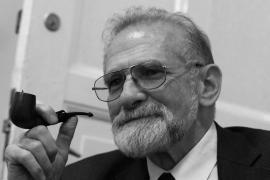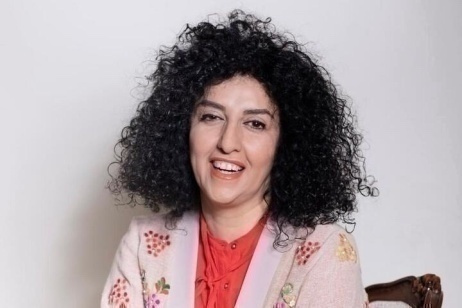
Bronislaw Geremek
I am a Jew. When I see the new anti-Semitic climate that people are breathing in France, I feel a sense of anguish. When I see the attacks against Zionism and I hear that the only state in the world that would have no right to exist for original guilt would be that of Israel, I get goosebumps. It would not occur to anyone to demand the destruction of Russia when communism was there, as Alain Finkielkraut wrote, and even today, when we recall the rights denied to Iran or Saudi Arabia or the very crimes of Assad in Syria, nobody would question the legitimacy of those states.
How can we respond to such a degeneration? There are two theories. The first one, more emotional, suggests people to close up and defend their own identity, at all costs. Separating ourselves from others in order to resist better. The latter, instead, is to become an active part of a wider resistance to defend human dignity against the climate of hate and intolerance generated, also in good faith, by the streams of populism and nationalism that agitated not only Europe.
The lesson from the past teaches us that every time we see resurface on the public stage movements that appeal to the defence of a nation, ethnic group, or also a religion against an alleged external contamination (such as the case of those who air the danger of migrants for the European culture), the Jews are more or less directly questioned as representatives of a dangerous cosmopolitism.
What has recently happened in Hungary and Poland urges us to deep thoughts.
In order to make this culture of closure pass, to counter one’s own nation against an idea of open and united Europe, these ideologies use the Jews as scapegoats, as it happened with George Soros and his University of Budapest or the Polish liberal circles close to Adam Michnik and his newspaper Gazeta Wyborcza. The very fundamentalist terrorism, when it hit the European cities, always targeted Jewish places in Paris as in Brussels, in order to point to Zionism as a negative bond in the Western world.
This is why I fought over the years to make the Jewish world the protagonist of a great universal movement for the defence of the dignity of all human beings, as I am aware that every degeneration has repercussions on the Jews, sooner or later. Every new form of hatred, as it already happened in fascism and communism, more or less directly befalls the Jews and re-ignites in a modern way the codes of anti-Semitism.
This is why I launched a cultural movement for the Day of the Righteous, able to bring about not only the figures of the past but also the best people of our time. I deemed that in the face of the old and new crimes, which were made possible by the indifference and connivance of those who turned a blind eye, it is necessary not only to remember the victims, but also to highlight the role of those who used their freedom to oppose evil, and thus affirmed the principle of personal responsibility. The Righteous people are the greatest evidence that there is never sheer determinism in history, but every human being in his or her span of control can always make the difference. We should never give this for granted, as everywhere, every time and under all circumstances, the Good is always possible.
When I started this pathway I received quite a lot of objections by the very Jewish world and the Jerusalem Memorial of Yad Vashem itself, who were worried that the concept of Righteous, extended to the other genocide cases and crimes against humanity, could damage the concept of uniqueness of the Holocaust as the most heinous horror of the Twentieth Century.
I answered that precisely the abnormity of the Shoah, with all its new and original categories of reflection, could become a reference point which nobody could disregard when it comes to identifying the mechanisms that can unleash new genocide cases so that we can put in place all possible means of prevention. Indicating the value of the Righteous people and personal responsibility under all circumstances meant not only make Jews possible sentinels of the world crises but also tracing the pathway of ethical life that would make it possible for people to avert the genesis of evil. There is no stronger and more universal message than affirming that the Righteous do not save only the Jews, but also the whole humanity, because when this is in danger, sooner or less the Jews will be, as well.
This is why, this year, in the most important celebrations of the Day of the Righteous, in particular in Rome and Milan, we have focused our work on the figures of the Righteous for Europe, in a moment, in which the political and cultural identity of our continent is challenged, while hate and anti-Semitism, able to awake the monsters of the past, resurface.
Simone Veil, Auschwitz survivor, whom we will honour at the Garden of Milan, in her first speech to the European Parliament as its President, said that the European construction was the best antidote to prevent future wars in the continent and to prevent the fascination o new totalitarian, Nazi and anti-Semitic ideologies.
Hers was the same spirit of István Bibó, who in Hungary, after the war, had fought with all his strength for the victory of democracy in his country and, after the Soviet invasion of 1956, was the last deputy to remain alone to preserve the Parliament. He strongly believed that only a democratic system and the end of nationalism in Europe could pave the way for a deep soul-searching of the Hungarians about their responsibilities for the Jewish persecution – which they had opportunistically offloaded on the Germans. It is not by chance that today, the illiberal and nationalistic policy of Orbán is again igniting anti-Semitism in the country.
Along with these protagonists of European rebirth, we will honour Ada Rossi in Pescara, Ursula Hirshmann in Rome, Eugenio Colorni in Benevento, key personalities behind the Manifesto of Ventotene. And we will also honour, in the Garden of the Righteous of Villa Pamphili in Italy’s capital, Poland’s Bronislaw Geremek, who more than any other believed that anchoring of Poland to Europe was indispensable for his country, to avoid falling into new anti-democratic logics and anti-Semitic relapses, as it is unfortunately happening today.






